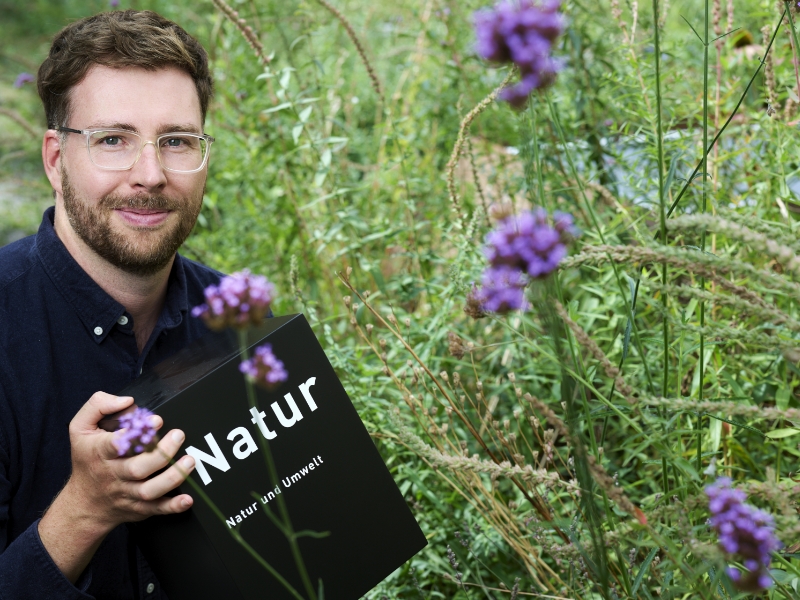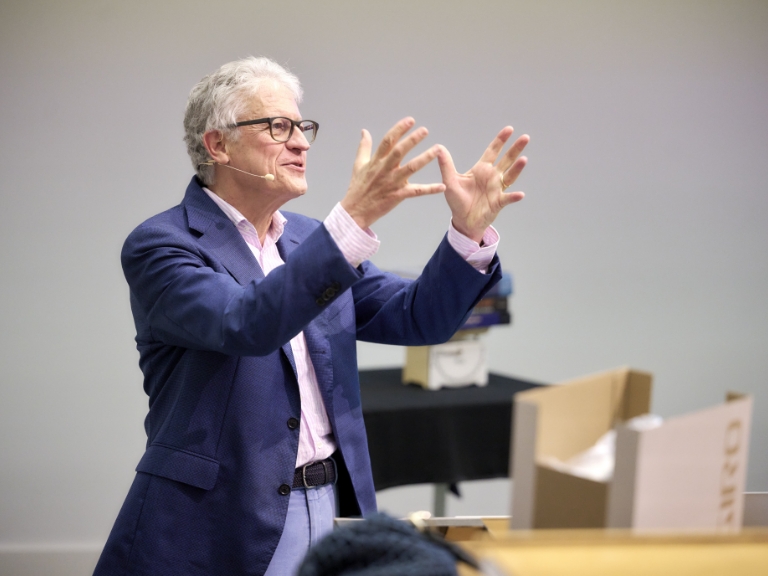People at the University of Bern
“Free access to research data is crucial”
As a data steward, Martin Wegmann supports researchers at the University of Bern in handling data. He emphasizes that this is also a service to society.

We data stewards support researchers in managing their data. As research produces more and more data, more and more researchers need support, for example with data publication, ethical issues or using artificial intelligence. In the best case, we improve research output and make it fully available to society.
What prompted you personally to become a data steward?
I'm a climatologist by training, I did my doctorate in climate science here in Bern and then worked as a researcher in Switzerland, France and Germany. Over the course of my career, my perspective has changed: At first, I saw research primarily as solving problems. But over time, the idea of transparent and service-oriented science became more and more important to me. As taxpayers fund research projects, science has a responsibility to give something back to society. As a data steward, I stay close to science and can support it. At the same time, my work makes an important contribution to society. That means a lot to me.
«Science has the responsibility to give something back to society.»
Martin Wegmann
What concrete benefits does research data management have for society?According to the United Nations, free access to scientific data is crucial to tackling global problems such as climate change, famine and poverty. Unfortunately, there is often a lack of sufficient data, which slows down progress in solving these problems. I see research data management as an important step in addressing these challenges. The data that researchers at the University of Bern publish on our platform are then publicly accessible for at least ten years, provided they do not contain any personal information – and can then be used by researchers at other universities, for example.
What kind of data is this?
Very old temperature measurement series from Bern, Zurich or Geneva are an illustrative example from the natural sciences. Such data helps us to view current heatwaves in a historical context and to better understand extreme weather events.
What issues do researchers turn to you with?
In the natural sciences, for example, we help researchers manage large amounts of data. Climate models, for example, generate huge amounts of data. In astronomy and genetics, too, data volumes can easily exceed a terabyte, or one million megabytes. As data stewards, we regularly have to find a compromise between the amount of data published and the philosophical idea of open access to data.
What do you mean by that?
Consider images of the night sky from an observatory. If a researcher is doing a doctorate on Jupiter, only the part of the image that shows Jupiter is relevant to that study. But someone else might want to study Saturn. That's why all images have potential value for research and society. So we want to publish as much research data as possible. On the other hand, there is a limit to the amount of data we can make available for free - finding the right balance is a challenge.
Subscribe to the uniAKTUELL newsletter

Discover stories about the research at the University of Bern and the people behind it.

